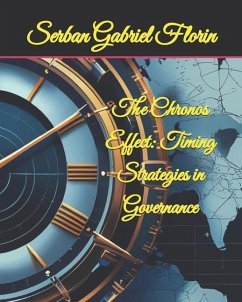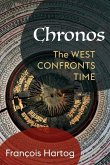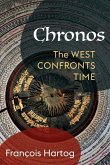Time, the invisible architect of political reality, stands as perhaps the most overlooked dimension in contemporary political analysis. While space, power, and resources have dominated political discourse, the temporal dimension of politics-what we term "chronopolitics"-has still been largely unexplored despite its fundamental importance to governance, power relations, and political change. In an era where political decisions ripple across decades and generations, understanding the temporal dynamics of power has become not just an academic pursuit, but a crucial necessity for effective governance. This book presents a novel theoretical framework for understanding the intersection of time and politics, offering both scholars and practitioners a new lens through which to examine political phenomena. By synthesizing insights from political theory, sociology, philosophy, and complexity science, we develop a comprehensive approach to analyzing how temporal dynamics shape political systems, decision-making processes, and governance structures. The temporal dimension of politics manifests in multiple, interconnected ways: in the rhythms of electoral cycles, in the urgency of crisis response, in the long horizons of constitutional design, and in the intergenerational implications of environmental policy. Each of these temporal aspects demands different analytical tools and theoretical frameworks, which this work systematically develops and applies. The ontological status of time in political systems presents a fascinating paradox: while time serves as the medium through which political action unfolds, it simultaneously acts as a constraint and resource that political actors must navigate. Drawing from Barbara Adam's timescape perspective and Hartmut Rosa's social acceleration theory, we examine how different temporal frameworks shape political possibilities and constraints. Our epistemic approach builds upon two fundamental premises: first, that temporal understanding is crucial for political knowledge production; and second, that different political systems operate within distinct temporal logics. As Paul Virilio argues in his dromology, the politics of speed has become increasingly central to modern governance, while Johannes Fabian's work on time and the "Other" reveals how temporal frameworks can reinforce or challenge power relations. Historical analysis reveals that political time has undergone significant transformations throughout different epochs. From the cyclical time of ancient civilizations to the linear progress narratives of modernity, and now to what Manuel Castells calls "timeless time" in the network society, each temporal paradigm has produced distinct forms of political organization and legitimacy. In an era marked by accelerating technological change, climate crisis, and global interconnectedness, understanding the temporal dimension of politics has never been more crucial. This work addresses several pressing questions: How do different time horizons affect political decision-making and institutional design? What role does temporal synchronization play in governance across multiple scales? How do political systems manage competing temporal demands and expectations? What are the implications of temporal asymmetries for democratic legitimacy and accountability? How can political institutions better address long-term challenges while keeping short-term legitimacy? What role does temporal sovereignty play in international relations? The empirical foundation of this work rests on extensive case studies across multiple domains. Looking to the future, this work opens new avenues for research in temporal metrics for governance, integration of artificial intelligence in temporal analysis, and emerging temporal challenges in global governance.
Hinweis: Dieser Artikel kann nur an eine deutsche Lieferadresse ausgeliefert werden.
Hinweis: Dieser Artikel kann nur an eine deutsche Lieferadresse ausgeliefert werden.








